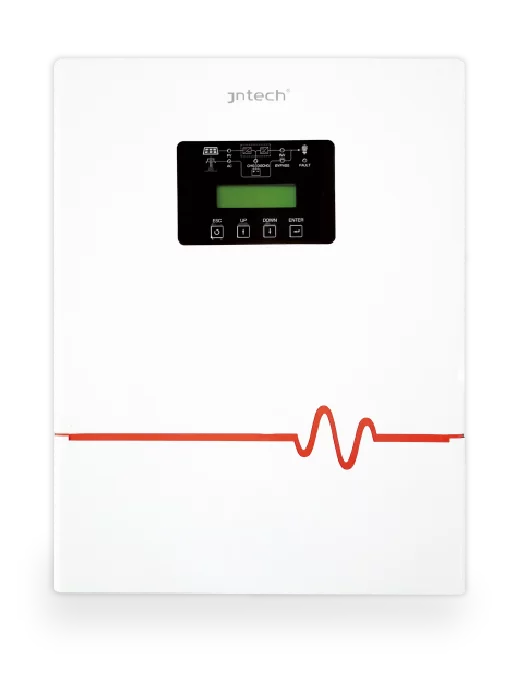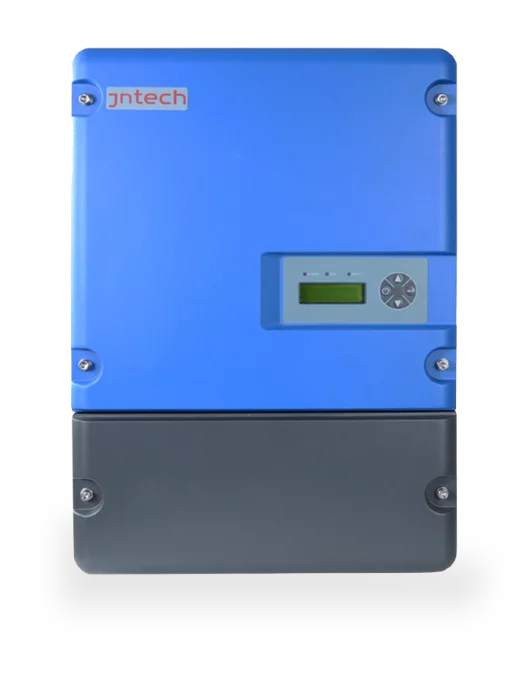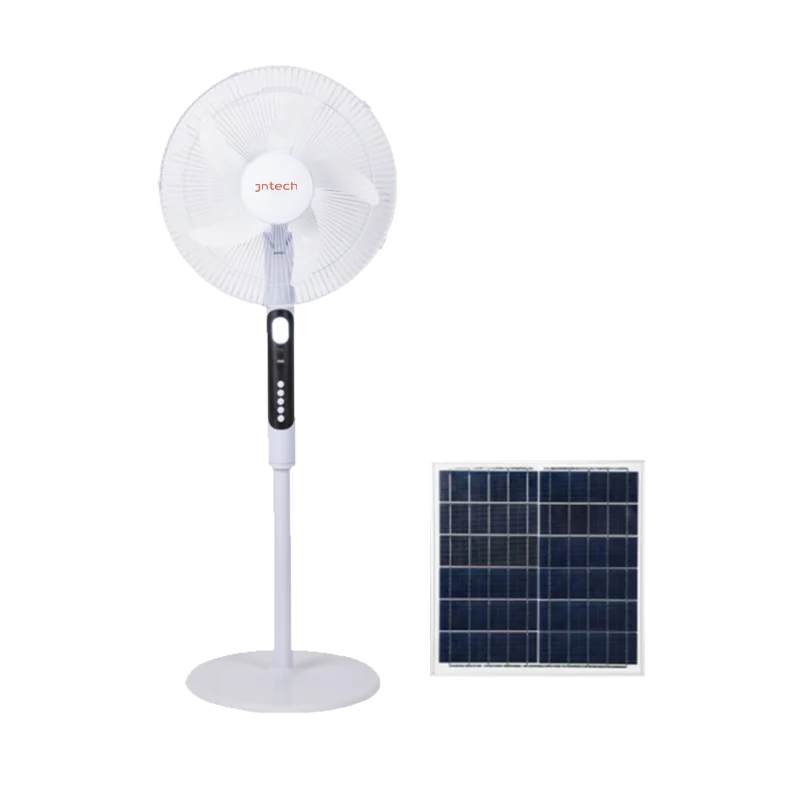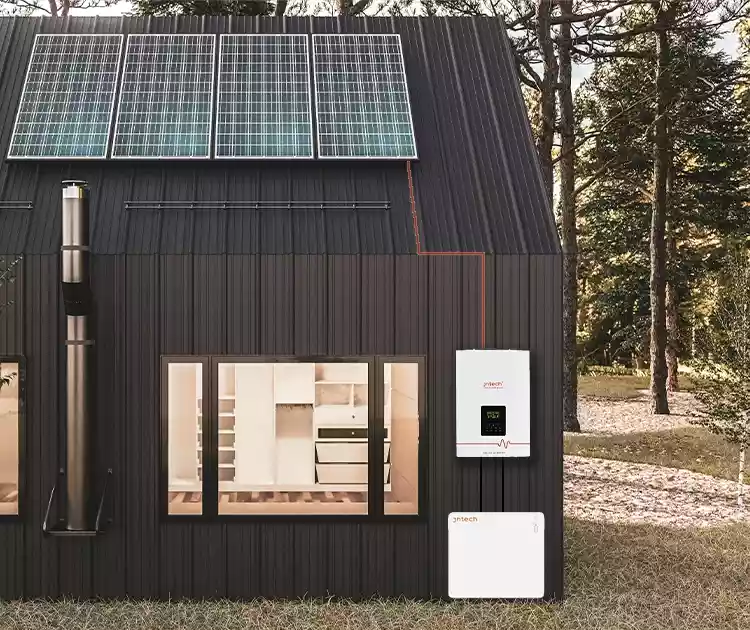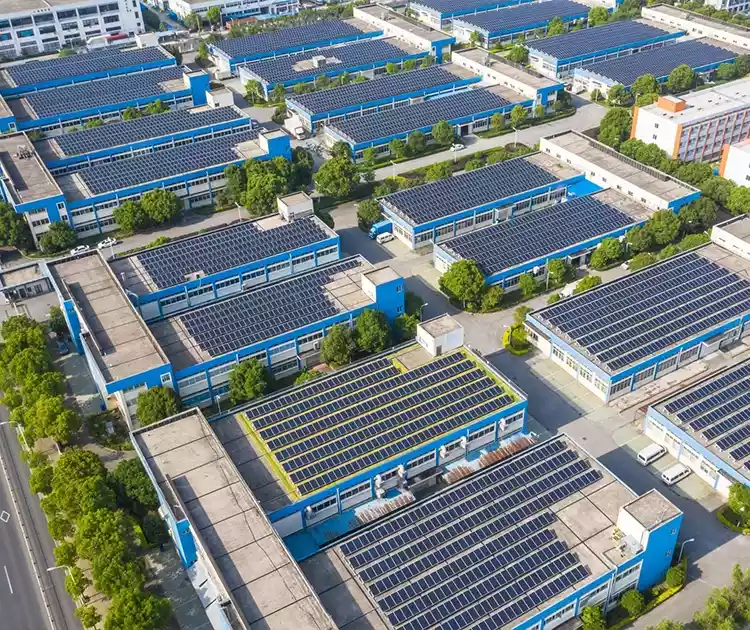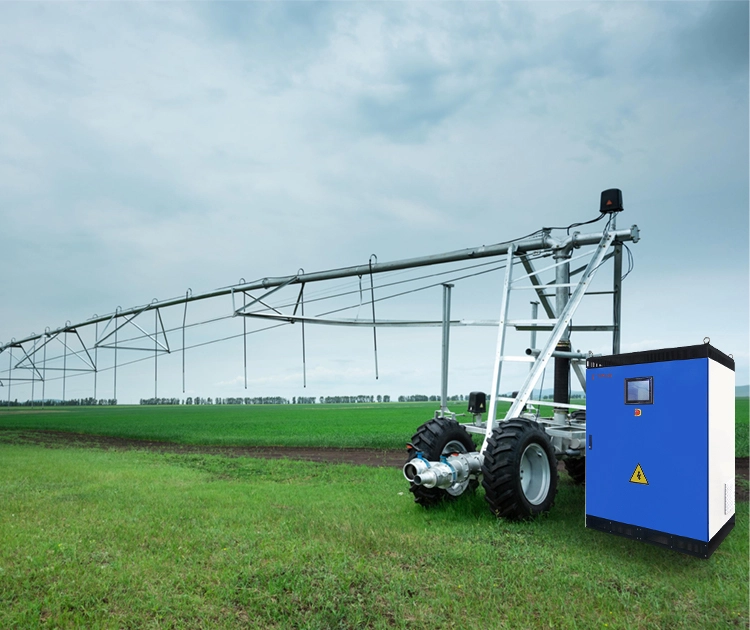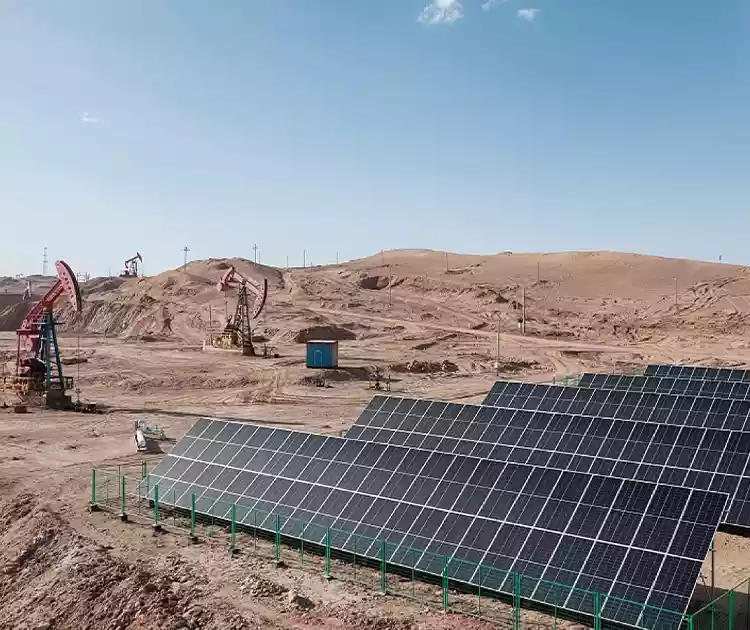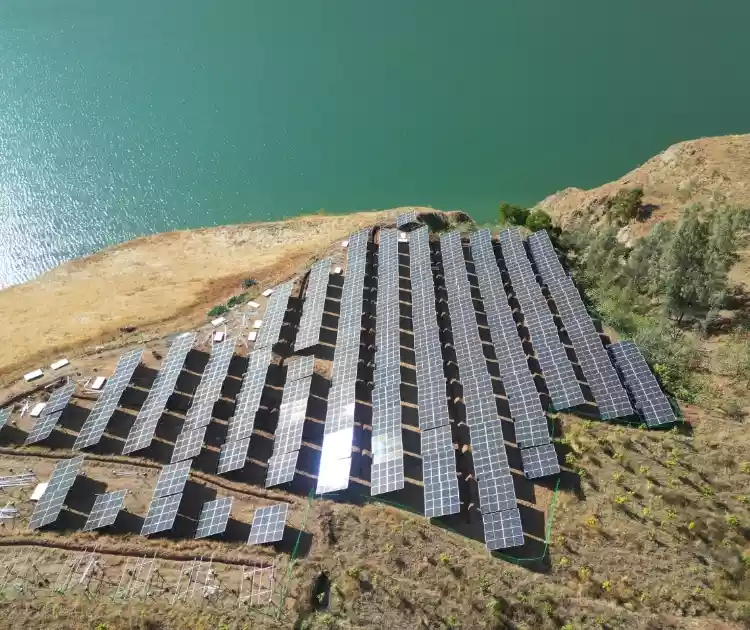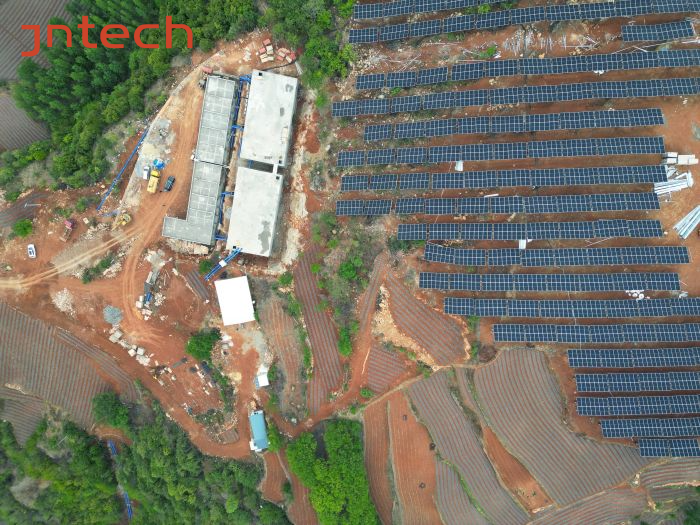Những điều bạn cần biết về hệ thống năng lượng mặt trời dân dụng?
Thời gian phát hành: 15-10-2025
Mục lục
Hệ thống năng lượng mặt trời dân dụng không chỉ giúp các gia đình giảm hóa đơn tiền điện mà còn giảm lượng khí thải carbon, góp phần xây dựng một tương lai xanh hơn. Là người tiêu dùng, việc hiểu rõ những kiến thức cơ bản về hệ thống điện mặt trời dân dụng là vô cùng quan trọng để đưa ra lựa chọn sáng suốt. Vậy, những điểm chính bạn cần biết về hệ thống điện mặt trời dân dụng là gì?
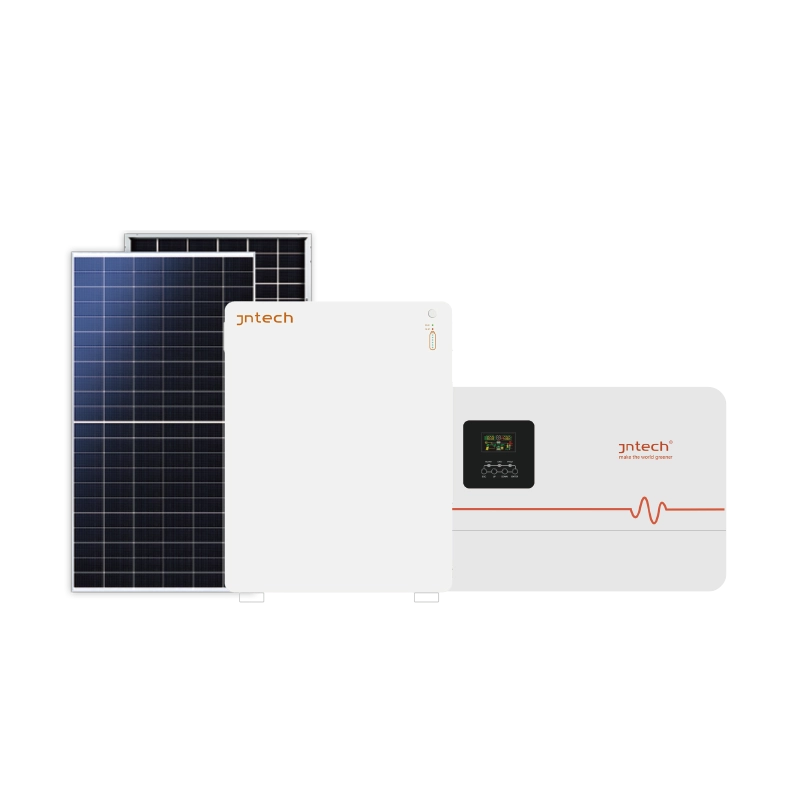
Hệ thống năng lượng mặt trời dân dụng là gì?
Hệ thống điện mặt trời dân dụng cung cấp điện xanh, bền vững cho hộ gia đình bằng cách chuyển đổi ánh sáng mặt trời thành điện năng. Hệ thống này thường bao gồm các tấm pin quang điện (PV), bộ biến tần, hệ thống lưu trữ pin và các thiết bị hỗ trợ khác. Các tấm pin mặt trời hấp thụ bức xạ mặt trời, chuyển đổi thành điện một chiều (DC), sau đó được bộ biến tần chuyển đổi thành điện xoay chiều (AC) để sử dụng hàng ngày trong gia đình.
Các thành phần cơ bản của hệ mặt trời
Một hệ thống năng lượng mặt trời dân dụng hoàn chỉnh thường bao gồm các thành phần chính sau:
- Tấm pin mặt trời: Tấm pin mặt trời là trái tim của hệ thống, hoạt động bằng cách hấp thụ ánh sáng mặt trời và chuyển đổi thành điện năng. Hầu hết các tấm pin mặt trời hiện nay được làm bằng silicon tinh thể, có thể là loại đơn tinh thể hoặc đa tinh thể. Tấm pin đơn tinh thể có hiệu suất chuyển đổi cao hơn nhưng đắt hơn một chút.
- Biến tần: Tấm pin mặt trời tạo ra dòng điện một chiều (DC), trong khi các thiết bị gia dụng cần dòng điện xoay chiều (AC). Biến tần chuyển đổi DC thành AC.
- Hệ thống lưu trữ pin: Một số ngôi nhà chọn lắp thêm hệ thống lưu trữ pin để có thể sử dụng điện đã lưu trữ ngay cả vào những ngày không có nắng.
Lợi ích chính của việc lắp đặt hệ thống năng lượng mặt trời dân dụng
- Tiết kiệm hóa đơn tiền điện: Sử dụng năng lượng mặt trời có thể giúp giảm đáng kể hóa đơn tiền điện của gia đình, đặc biệt là ở những khu vực có nhiều nắng.
- Lợi ích về môi trường: Năng lượng mặt trời là nguồn năng lượng sạch, tái tạo giúp giảm lượng khí thải carbon.
- Tăng giá trị tài sản: Những ngôi nhà được trang bị hệ thống năng lượng mặt trời thường hấp dẫn hơn và có xu hướng có giá trị tài sản cao hơn.
- Tăng cường tính độc lập về năng lượng: Hệ thống năng lượng mặt trời giúp giảm sự phụ thuộc vào lưới điện bên ngoài, ngăn ngừa chi phí năng lượng tăng cao, đặc biệt là trong thời gian sử dụng cao điểm.
Các yếu tố cần xem xét khi lựa chọn hệ thống năng lượng mặt trời
Việc lựa chọn hệ thống điện mặt trời phù hợp đòi hỏi phải đánh giá nhiều yếu tố ảnh hưởng đến hiệu suất đầu tư và hiệu quả chi phí. Sau đây là một số cân nhắc chính:
- Nhu cầu năng lượng và mô hình tiêu thụ
Hiểu rõ nhu cầu năng lượng của bạn là rất quan trọng khi lập kế hoạch lắp đặt hệ thống điện mặt trời dân dụng. Hãy xem lại hóa đơn tiền điện trước đây để ước tính mức sử dụng trung bình và xác định thời điểm sử dụng điện cao điểm. Điều này sẽ giúp bạn điều chỉnh kích thước hệ thống phù hợp để đảm bảo đáp ứng nhu cầu năng lượng của gia đình bạn. - Không gian và hướng mái nhà
Không gian mái nhà và hướng mái là yếu tố quan trọng quyết định hiệu suất của tấm pin mặt trời. Mái nhà hướng về phía Nam, thông thoáng là điều kiện tốt nhất để lắp đặt tấm pin mặt trời. Đảm bảo mái nhà ở trong tình trạng tốt và có thể chịu được trọng lượng của tấm pin. - Tùy chọn ngân sách và tài chính
Chi phí lắp đặt hệ thống điện mặt trời dân dụng có thể thay đổi đáng kể tùy thuộc vào quy mô hệ thống, các thành phần và vị trí lắp đặt. Bạn có thể tìm hiểu các phương án tài chính như vay vốn, thuê mua hoặc hợp đồng mua bán điện (PPA) để chia nhỏ chi phí. Các ưu đãi như tín dụng thuế và hoàn thuế cũng có thể giúp giảm tổng chi phí, giúp chủ nhà dễ dàng tiếp cận điện mặt trời hơn.
Lợi ích tài chính của hệ thống năng lượng mặt trời
Khoản đầu tư ban đầu vào việc lắp đặt một hệ thống điện mặt trời dân dụng tương đối cao, nhưng nó có thể mang lại lợi ích tài chính lâu dài cho chủ nhà:
- Giảm hóa đơn tiền điện: Bằng cách tự sản xuất và sử dụng năng lượng mặt trời, chủ nhà có thể giảm đáng kể sự phụ thuộc vào lưới điện bên ngoài, từ đó giảm hóa đơn tiền điện. Khi giá điện tăng, thời gian hoàn vốn của hệ thống điện mặt trời ngày càng ngắn lại.
- Bán điện dư thừa: Nếu hệ thống năng lượng mặt trời tạo ra nhiều điện hơn nhu cầu của hộ gia đình, nhiều khu vực cho phép người dùng đưa lượng điện dư thừa trở lại lưới điện và nhận được khoản bồi thường.
- Tăng giá trị bất động sản: Những ngôi nhà có hệ thống năng lượng mặt trời thường trở nên hấp dẫn hơn trên thị trường vì người mua có thể tiết kiệm năng lượng trong thời gian dài.
Bảo trì và chăm sóc hệ thống năng lượng mặt trời
Hệ thống năng lượng mặt trời có chi phí bảo trì tương đối thấp, nhưng cần phải kiểm tra và bảo trì thường xuyên để đảm bảo hệ thống hoạt động hiệu quả lâu dài:
- Vệ sinh tấm pin: Thường xuyên vệ sinh tấm pin mặt trời để loại bỏ bụi bẩn và mảnh vụn, đảm bảo chúng nhận được đủ ánh sáng mặt trời.
- Kiểm tra thành phần hệ thống: Xác minh rằng các thành phần như bộ biến tần và hệ thống lưu trữ pin đang hoạt động bình thường và thay thế ngay bất kỳ thành phần nào cũ hoặc bị hỏng.
- Giám sát hệ thống: Sử dụng hệ thống giám sát điện năng để theo dõi quá trình sản xuất điện mặt trời theo thời gian thực nhằm đảm bảo hệ thống hoạt động tối ưu.
Lựa chọn nhà cung cấp hệ thống năng lượng mặt trời phù hợp
Lựa chọn một đáng tin cậy nhà cung cấp hệ thống điện mặt trời dân dụng là rất quan trọng. Dưới đây là một số tiêu chí lựa chọn:
- Chất lượng và uy tín: Chọn nhà cung cấp có uy tín trên thị trường và khách hàng để đảm bảo chất lượng sản phẩm và dịch vụ sau bán hàng.
- Dịch vụ sau bán hàng: Các nhà cung cấp chất lượng cao thường cung cấp dịch vụ lắp đặt, bảo trì và hỗ trợ kỹ thuật toàn diện để đảm bảo hệ thống hoạt động ổn định lâu dài.
- Bảo hành sản phẩm: Ưu tiên các sản phẩm có thời gian bảo hành dài để đảm bảo được sửa chữa hoặc thay thế kịp thời nếu phát sinh sự cố trong quá trình sử dụng lâu dài. Ví dụ: Công nghệ JN cung cấp nền tảng vận hành và bảo trì thông minh cho phép vận hành tự động, bảo trì dự đoán và tối ưu hóa chỉ bằng một cú nhấp chuột, giảm thời gian ngừng hoạt động và cải thiện độ tin cậy của hệ thống.
Hệ thống điện mặt trời dân dụng là giải pháp hiệu quả và bền vững để cung cấp điện cho ngôi nhà của bạn. Việc hiểu rõ các thành phần cơ bản, những lưu ý và mẹo bảo trì của hệ thống điện mặt trời sẽ giúp bạn lựa chọn được hệ thống phù hợp với nhu cầu và mục tiêu năng lượng của mình.
Nếu bạn có bất kỳ câu hỏi nào về hệ thống năng lượng mặt trời dân dụng, vui lòng liên hệ với nhóm chuyên gia của chúng tôi để được tư vấn chuyên nghiệp và giải pháp tùy chỉnh.


